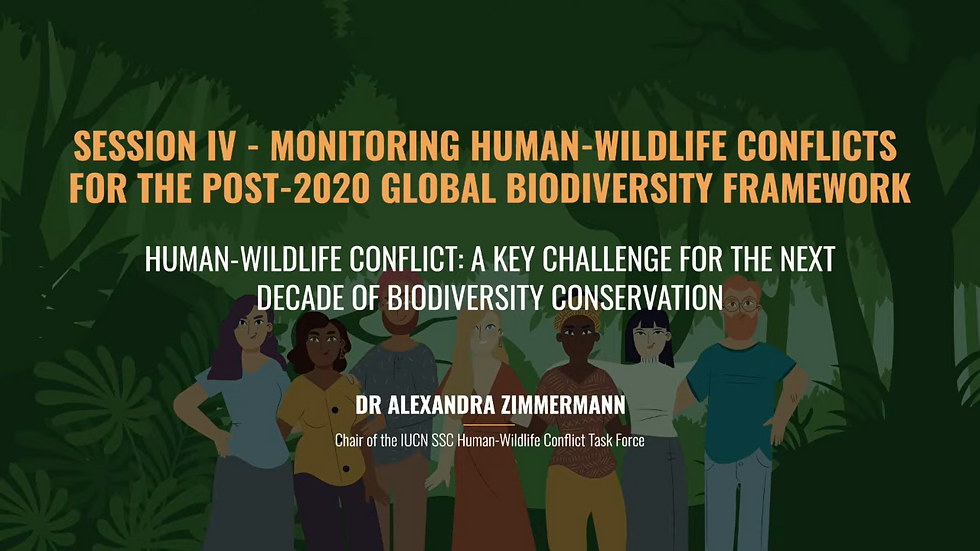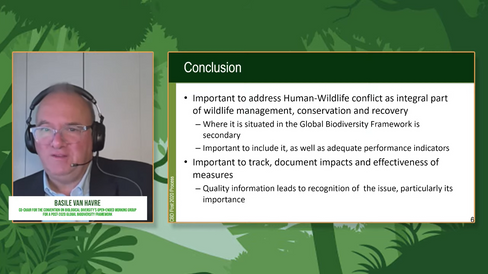Session on monitoring HWC for the CBD Post-2020 at CPW Forum
- IUCN Human-Wildlife Conflict & Coexistence Specialist Group

- Sep 30, 2021
- 2 min read
Updated: Oct 28, 2021

In collaboration with the FAO, we hosted a session during the Collaborative Partnership on Sustainable Wildlife Management (CPW) Wildlife Forum on monitoring human-wildlife conflicts for the post-2020 Global Biodiversity Framework. Following an introduction by Kristina Rodina, Forestry Officer for the FAO, on the work the CPW has been doing to address human-wildlife conflict, the Co-Chair for the Convention on Biological Diversity Open-Ended Working Group, Basile van Havre highlighted the current status of human-wildlife conflict in the draft Post-2020 Global Biodiversity Framework and the importance of keeping the concept of human-wildlife conflict well-integrated in the framework, and identifying the right indicators and monitoring frameworks.
Dr Alexandra Zimmermann, Chair of the IUCN SSC Human-Wildlife Conflict Task Force highlighted the complexity of measuring a target on human-wildlife conflict and what needs to be considered when thinking about indicators, measurements and monitoring of human-wildlife conflict which were, 1) the harder aspects to measure are the intangible, qualitative aspects but the most important, 2) how to incentivise action so countries do not focus on just monitoring, 3) many stakeholders should be involved in a highly participatory, co-learning approach, 4) measuring needs to be linked to action, good practice and best advice.

The session opened to contributions from speakers who highlighted how human-wildlife conflict was monitored in the context of their work and how lessons from other monitoring programmes could be applicable to human-wildlife conflict. Dr Rogerio Cunha de Paula of the National Research Center for Carnivores Conservation explained how projects working to address human-wildlife conflict are monitored in Brazil, outlining some of the challenges of the process. Thea Carroll, MIKE Programme Coordinator for the CITES Secretariat provided insights from establishing and coordinating the implementation of the CITES MIKE Programme that monitors the illegal killing of elephants, across 45 range states for African and Asian elephants and highlighting lessons that can be applied to monitoring human-wildlife conflict. Dr Simon Pooley of Birkbeck University of London explained how crocodile attacks were being recorded on a global scale but noted that although impacts are often easiest to measure, the ease should not obscure the complexities of conflict. Dr Diogo Veríssimo from On the Edge Conservation offered potentially new sources of data that might become available to measure such complex topics as technology advances and we move into a more digital world.
The presentations were followed by a Q&A session with the audience to further discuss the complexity of measuring human-wildlife conflict. If you were unable to join the session, you can find a summary here or watch the recording of the session below.



















